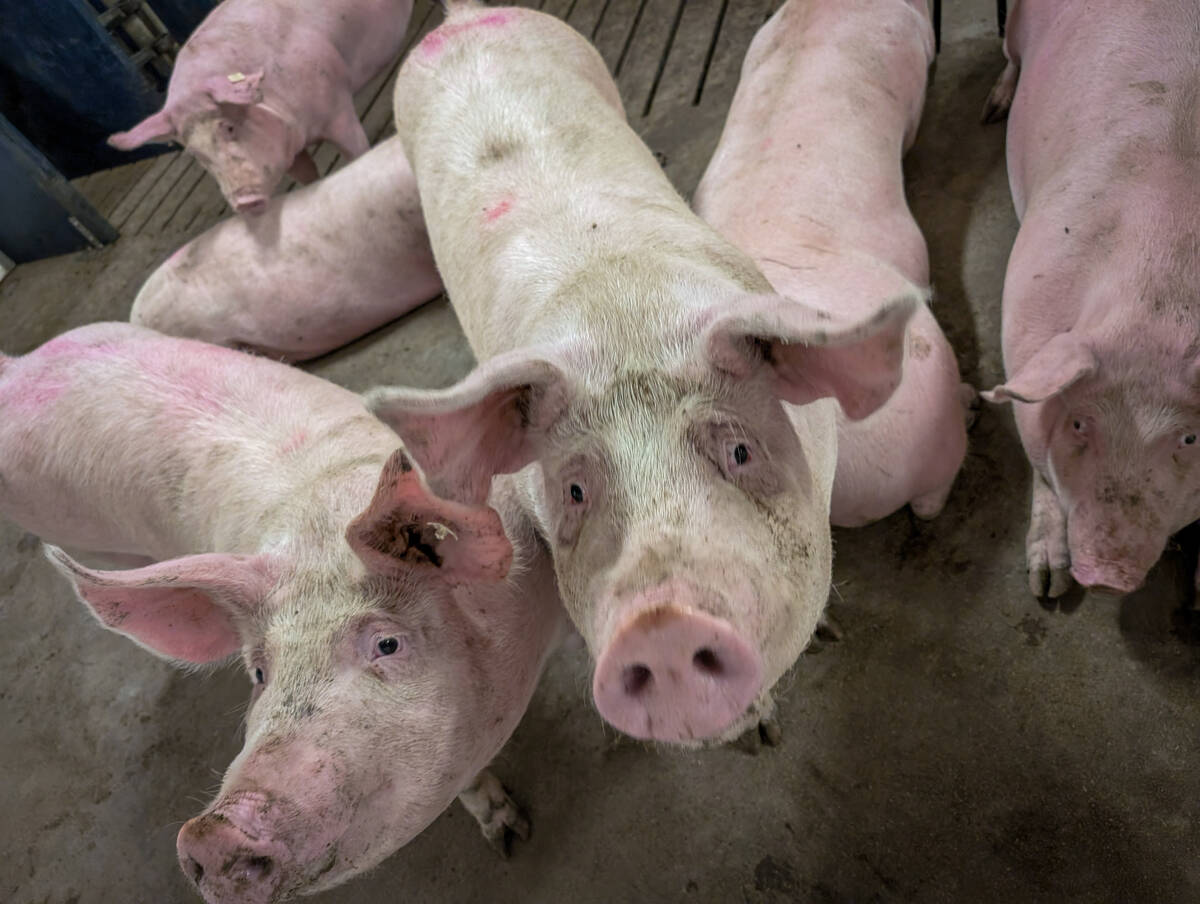REGINA — There may have been a few moments when Billy Elmhirst considered flipping a coin while judging the Angus show at Canadian Western Agribition.
“There were so many good cattle it was a hard decision,” he said of the Nov. 24 show, which is probably Canada’s largest Angus show.
Elmhirst looks for overall soundness, proper body conformation and attractiveness.
“I look at cattle all the same way,” he said.
Elmhirst and his wife, Juanita, own Indian River Cattle Co., east of Peterborough, Ont., where the family has farmed for 150 years.
Read Also

Pork sector targets sustainability
Manitoba Pork has a new guiding document, entitled Building a Sustainable Future, outlining its sustainability goals for the years to come.
Along with the production of 90 polled Herefords and 50 red and black Simmentals, the Elmhirsts also run a custom fitting and show service for all breeds of cattle.
As well, they offer sales management, marketing and ring service. Juanita manages the catalogue, brochure and web design and livestock photography business.
The couple met at Agribition and have been married for 15 years. They have two young children, Owen and Katie.
The Elmhirsts have also judged cattle as a team and generally see eye to eye on what they deem to be the best.
He was asked to judge the Agribition show in the spring and was one of the panel of five judges to evaluate the supreme champions in Regina.
“It is fun to be a part of it. It is a celebration,” he said.
The Elmhirsts have enjoyed considerable exhibition success of their own. The Royal Agricultural Winter Fair in Toronto held a supreme competition in 2000 and the couple won the bull and female awards.
They have also been premier breeders and exhibitors at the Roya l and other eastern Canadian shows.
This year they attended Agribition with a string of six Simmental cattle, some of which belong to their children for their junior projects.
The trip from their farm to Regina is four hours by plane but 36 hours by truck for the cattle.
The animals arrived the Wednesday before the event started so that they could recover from travelling stress, get used to the local water and rest before entering the show ring.
The Elmhirsts’ live cattle, embryos and semen are traditionally exported to the United States with a large number of females going into junior programs. They have cattle in 24 states and have also sold embryos and semen to Australia, New Zealand and South America.
The farm took a hit when the discovery of BSE in Canada closed trade borders in 2003.
“The cow herd grew and we spent more money trying to get traffic locally,” he said.
They also had to adopt other sales techniques and for the last four years have sold cattle through a week long internet sale in December.
“We don’t have enough Simmental cows to have a production sale, so this is a good fit,” he said.
The Simmental breed has received $3 million for genetic research. He is not sure where his herd might fit, but believes adopting DNA technology is another tool to improve cattle fertility and beef carcasses.
“You’d be crazy not to participate. There is no guesswork and it will add value,” he said.

















